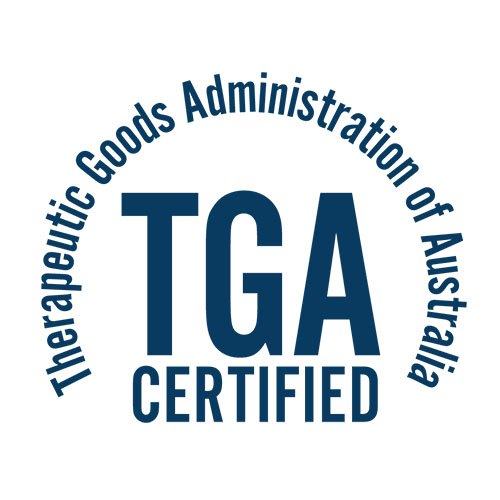The Therapeutic Goods Administration (TGA) of Australia has provided public consultations on reporting adverse events associated with medical devices. The document describes the new approach to adverse event reporting to be implemented to improve communication among all the parties involved with medical devices. The consultation paper is also accompanied by two surveys: one for industry representatives and the other for consumers. The authority will accept comments and suggestions submitted before November 18, 2020.

Post-Market Surveillance in Brief
The TGA emphasizes the importance of the post-market monitoring and surveillance activities performed by the authority. These activities include continuous collection and analysis of the information on incidents and adverse events associated with medical devices, as well as additional actions taken to mitigate the risks for public health and patients. Such activities allow the authority to be aware of all safety-related issues and to implement the measures accordingly.
Each individual adverse event report is subject to the rigorous assessment performed to evaluate the potential risks associated with similar devices available to the patients. As the result, the TGA determines the actions to be taken to mitigate such risks and hazards associated thereto.

Regulatory Background
The regulations on adverse event reporting for medical devices are actually aligned with similar regulations adopted in other countries and implement the best practices and methods. However, the TGA intends to strengthen them to reduce the time necessary to take the appropriate actions to ensure the highest level of health protection.
The authority also states that the proposed amendments are also based on numerous reviews of the safety-related issues. In particular, the TGA refers to the Expert Panel Review of Medicines and Medical Devices Regulation (MMDR) published earlier in 2016. According to the aforementioned recommendations, the potential ways of improvement include, inter alia, the following:
- Extension of the scope of data on adverse events to be collected,
- Development of a new approach to the adverse event risk assessment, which should be more transparent,
- Implementation of new approaches applied to determine the particular cases to be investigated in detail,
- Identification of the most important improvements to the safety and quality of medical devices allowed to be marketed in Australia.
Besides the aforementioned document, the TGA also considered other reviews, inquiries, and recommendations. For instance, the Senate Committee Inquiry recommended introducing the requirements on mandatory adverse event reporting by surgeons.
The TGA also intends to implement the strategies prescribed by the Action Plan for Medical Devices initially published in 2019, namely:
- Improve how new devices get on the market,
- Strengthen monitoring and follow up of devices already in use,
- Provide more information to patients about the devices they use.
At the same time, the authority mentions that certain measures have been already implemented. These steps already taken by the TGA include, inter alia, the following ones:
- Introduction of more frequent reporting,
- Improvement of online reporting forms to make them more comfortable for persons using them,
- Development of the Australian unique medical device identification system,
- Development of the new risk analysis methods and approaches,
- Active consultations with industry representatives and other parties involved in operations with medical devices to create a new approach to adverse events reporting system in general.
TGA Proposals on Adverse Event Reporting for Medical Devices
The present TGA consultation paper is intended to initiate discussion on the five core proposals developed by the Australian medical device regulating authority. According to the TGA, the aforementioned proposals would improve the availably of the safety-related information and simplify all adverse event reporting procedures. By implementing the proposed changes, the TGA intends to establish the efficient mechanisms of sharing the information related to the risks associated with the particular medical device or a type in general, the way the patients could be affected, and which actions should be taken in this regard.
In accordance with the consultation paper or adverse event reporting for medical devices, the Australian regulating authority suggests the following proposals:
- To amend existing exemptions related to adverse event reporting,
- To strengthen the adverse event reporting requirements,
- To review post-market definitions in the Medical Devices Regulations,
- To improve communication between the authority and consumers using medical devices.
Besides the key points outlined here above, the TGA is also going to consider the feedback on the proposed alignment with the European Union medical device regulatory framework for periodic safety update reporting, and the unique device identification system.

Adverse Event Reporting: Key Concepts
The TGA also provides a general overview of the situation existing nowadays in the context of post-market monitoring activities and adverse event reporting. The authority conducts a rigorous investigation of adverse events and incidents associated with medical devices to identify the preconditions of adverse events, potential risks, and any particular actions that could be taken to mitigate such risks.
Nowadays the authority faces a significant increase in the number of adverse event reports for medical devices. Most of them are submitted by the sponsors – the entities responsible for medical devices, such as medical device manufacturers of their authorized representatives. From the point of view of the authority, this creates reasonable grounds to assume that healthcare professionals and patients are not familiar with the option to submit the reports directly to the TGA. Hence, healthcare professionals and patients mostly provide the information on adverse events to the healthcare institutions, while the latter may or may not forward the report further to the sponsors or regulating authority.
One of the most important concepts related to the incidents associated with medical devices is a «near adverse event» – a situation that might have led to a serious injury but actually has been prevented – for example, due to the timely intervention of a healthcare professional. The authority states that it is vitally important to ensure that all such situations are being duly reported as well since the information associated thereto could be useful for risk analysis.
The reporting of adverse events or near adverse events is mandatory for the sponsors, and failure to fulfill this requirement could result in suspension or cancellation of the appropriate entry in the Australian Therapeutic Goods Register (ARTG), the national register of medicinal products subject to special regulation, which actually means the prohibition of further distribution of medical device in Australia.
In order to assist all parties involved in sustaining compliance with the adverse event reporting requirements, the TGA also provides a list of criteria to be considered when determining whether the particular incident is subject to reporting. The main criteria are:
- An adverse event has occurred, or had the potential to occur,
- The medical device is associated with the adverse event; and
- The event let or might lead to serious injury.
Summarizing the information provided here above, the TGA consultation paper on adverse event reporting covers the most important aspects associated with reporting rules and requirements. In particular, the authority provides a brief overview of current legislation and potential ways of its improvement and also suggests certain proposals to be implemented to improve the effectiveness of adverse event reporting and the safety of medical devices marketed in Australia in general.
How Can RegDesk Help?
RegDesk is a next-generation web-based software for medical device and IVD companies. Our cutting-edge platform uses machine learning to provide regulatory intelligence, application preparation, submission, and approvals management globally. Our clients also have access to our network of over 4000 compliance experts worldwide to obtain verification on critical questions. Applications that normally take 6 months to prepare can now be prepared within 6 days using RegDesk Dash(TM). Global expansion has never been this simple.
Sources:
https://consultations.health.gov.au/tga/copy-of-test-2-adverse-events-reporting-for-medica/

